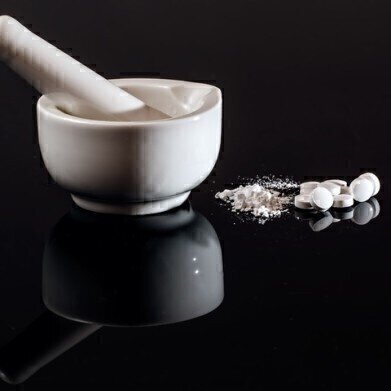Bioanalytical
What is Switzerland's Pop-Up Drugs Screening?
Dec 26 2016
Drugs — psychedelics, marijuana and opium have been used for hundreds, if not thousands of years for medicinal and spiritual reasons. Why cannabis, opium and the rest of the drugs now classified as illegal should be illegal is open to debate. After all, many would argue that the harms from these illegal drugs are less than the harms associated with cigarettes and alcohol.
It was at the end of the nineteenth century that society decided that some drugs should be illegal. The principle reason seems to be that society wanted more control over the population — or rather over certain sections of the population. Then in 1971, President Nixon in the USA declared a ‘war on drugs’.
Is the war lost?
Since 1971, the war on drugs has been waged across the world. It has directly and indirectly affected most people in Europe and the US. The cost has been tremendous — both financially and the human cost of gang wars, increased criminality and a huge drain on police and prison resources that could have been spent elsewhere.
Has the war been lost? The evidence suggests that the war certainly hasn’t been won. Of course, there are two sides to every argument and proponents for waging a war on drugs have arguments that are valid too. However, there are many organisations who suggest that a different approach should be used towards illegal drugs and drug use — including politicians and the police.
The Swiss system
One system that has been hitting the BBC news recently is the system used in Switzerland and has been trialled in the UK. This involves pre-testing the drug samples for users. Switzerland isn’t the only European country that carries out such testing, Spain, Portugal and Belgium are amongst other countries where testing for users is carried out. Does the system work and what is the rationale behind the tests?
In Switzerland, clubbers can drop off a sample of a recreational drug in midweek for testing. The clubber can remain anonymous but must answer a few questions from a drug councillor such as when he will take the drugs and if he will consume anything else with the drugs. The councillor takes a small portion of the drug for testing in a government laboratory using chromatography. The use of chromatography to analyse drug samples is discussed in the article, Biocompatible Solid Phase Microextraction (BioSPME) of Drugs of Abuse from Urine.
After testing, the results are passed to the councillor who can feed back to the user what exactly the drug is. Proponents of the system argue that it is saving lives by allowing drug users the chance to make informed choices. For example, the councillor can tell the user if the drug is very strong or has been cut with a noxious substance.
Others argue against the system saying that the state is paying for a quality control system for drug users. Would you prefer to know what you’re taking?
Digital Edition
Chromatography Today - Buyers' Guide 2022
October 2023
In This Edition Modern & Practical Applications - Accelerating ADC Development with Mass Spectrometry - Implementing High-Resolution Ion Mobility into Peptide Mapping Workflows Chromatogr...
View all digital editions
Events
Jan 20 2025 Amsterdam, Netherlands
Feb 03 2025 Dubai, UAE
Feb 05 2025 Guangzhou, China
Mar 01 2025 Boston, MA, USA
Mar 04 2025 Berlin, Germany












